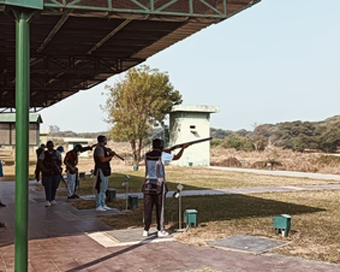Gallery
 PM Modi visit USA
PM Modi visit USA Only the mirror in my washroom and phone gallery see the crazy me : Sara Khan
Only the mirror in my washroom and phone gallery see the crazy me : Sara Khan Karnataka rain fury: Photos of flooded streets, uprooted trees
Karnataka rain fury: Photos of flooded streets, uprooted trees Cannes 2022: Deepika Padukone stuns at the French Riviera in Sabyasachi outfit
Cannes 2022: Deepika Padukone stuns at the French Riviera in Sabyasachi outfit Ranbir Kapoor And Alia Bhatt's Wedding Pics - Sealed With A Kiss
Ranbir Kapoor And Alia Bhatt's Wedding Pics - Sealed With A Kiss Oscars 2022: Every Academy Award Winner
Oscars 2022: Every Academy Award Winner Shane Warne (1969-2022): Australian cricket legend's life in pictures
Shane Warne (1969-2022): Australian cricket legend's life in pictures Photos: What Russia's invasion of Ukraine looks like on the ground
Photos: What Russia's invasion of Ukraine looks like on the ground Lata Mangeshkar (1929-2022): A pictorial tribute to the 'Nightingale of India'
Lata Mangeshkar (1929-2022): A pictorial tribute to the 'Nightingale of India' PM Modi unveils 216-feet tall Statue of Equality in Hyderabad (PHOTOS)
PM Modi unveils 216-feet tall Statue of Equality in Hyderabad (PHOTOS)India Open Competition in Shotgun, organised by the National Rifle Association of India (N
- Hockey India names Amir Ali-led 20-man team for Junior Asia Cup
- Harmanpreet Singh named FIH Player of the Year, PR Sreejesh gets best goalkeeper award
- World Boxing medallist Gaurav Bidhuri to flag off 'Delhi Against Drugs' movement on Nov 17
- U23 World Wrestling Championship: Chirag Chikkara wins gold as India end campaign with nine medals
- FIFA president Infantino confirms at least 9 African teams for the 2026 World Cup
Pandemic affected tourist behaviour: Study Last Updated : 01 Mar 2021 03:44:36 AM IST 
Tourists (file photo) The pandemic has affected tourists' attitudes and behaviours in unforeseen ways, often subconsciously, said a new study.
The study, published in the journal Annals of Tourism Research, indicated that post-pandemic tourism could curb our motivation for new adventures."We found that a Covid-19 threat also made people overestimate the crowdedness of public spaces and feeling uncomfortable in crowded places like restaurants or shopping malls," said researcher Florian Kock from Copenhagen Business School."Understanding the long-term psychological impact of the pandemic will be a crucial success factor for businesses during and long after the Covid-19 era," Kock added.For the study, the team implemented two survey-based studies at the start of the pandemic with 960 travellers to understand the deep-rooted changes of travel attitude and behaviour, gathering empirical insights.They found that feeling vulnerable to Covid-19 activates a so-called 'behavioural immune system' that in turn makes people engage in various behaviours that helped our ancestors survive when facing a disease.In the first study, the authors measured the degree to which individuals perceive a higher infection risk of Covid-19.They found that those who fear Covid-19 are more prone to being nationalistic and xenophobic, meaning that they favour those who are like themselves and avoid foreigners.In the second study, they found that those tourists who perceive Covid-19 as a big threat, subconsciously engage in behaviours in order to lower their travel-related risk perceptions.As such, tourists found strategies to mitigate the travel risk by, for example, travelling in groups, buying travel insurance, and visiting the places they had visited before, thereby increasing destination loyalty.IANS London For Latest Updates Please-
Join us on
Follow us on








172.31.16.186







